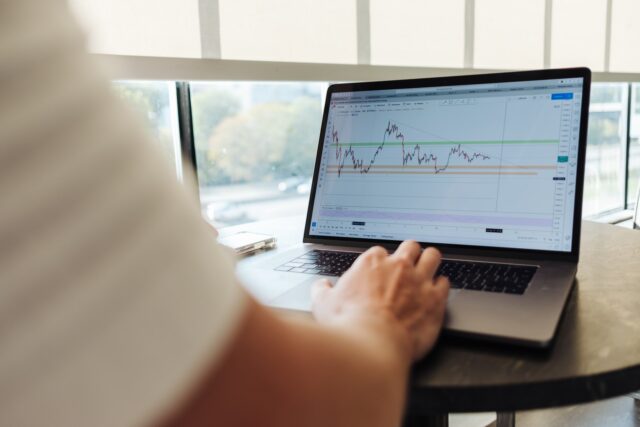
Trading in various commodities might seem like one of the biggest mysteries in the world, but they don’t have to be. Learning how to trade is more accessible than most people think, but it does take time, discipline, and practice. Luckily, making money in the markets is relatively simple, especially if you’re willing to put in the work to learn how.
1. Learn From The Community

Whether you are trading cryptocurrencies or conventional stocks, learning from those who have experience is always beneficial. Traders looking to learn how to trade can use communities like Reddit or Telegram groups to get started. According to the trading pros at Tradewise.community, you can also avoid scams while seeing what works when you are part of a community. Reddit also has numerous trading subreddits where people share their trading tips and take lessons from each other. In fact, the subreddit called r/WallStreetBets played a significant role in the Gamestop short that made many people a lot of money.
2. Use Technology
Trading is a competitive game, and you need every advantage to gain the edge. Trading platforms provide traders with a vast array of market analysis and charting tools. Analyzing historical data before implementing an idea can prevent costly mistakes. You can monitor trades wherever you are by getting market updates on your smartphones, and there are many apps available for you to download. Trading performance can significantly be increased by using technology you might take for granted, such as high-speed internet connections. Every second can mean the difference between profit or loss. You can take advantage of technology and keep up with new products to maximize your profitability in trading.
3. Learn Different Strategies (And Stick To One That Works For You)

Before you start learning trading strategies, it is crucial to understand the importance of strategy. Strategy is defined as a plan that guides what actions you should take to accomplish an objective. Strategies are implemented by identifying the options available for achieving the goal and selecting the option that creates the least risk or cost to achieve success. Strategy can also be defined as a plan that guides your actions to accomplish a goal. You should learn many techniques to understand the rules, but choose only one or two that you find work best for you. The purpose of selecting just a few is to hone them until they are second nature, and you will eventually be able to practice them without thinking about them.
4. Practice Using Dummy Accounts
The majority of decent brokerage accounts will come with a dummy account that you can use. A dummy account is an account that allows you to test out their strategies without giving away your real money. It uses fake funds that are designed to be similar to real money. Not only do these accounts allow for virtual trading, but they also provide a more significant opportunity for users and help them learn and practice new skills. Once you have accumulated more experience, you can still utilize these accounts to calculate returns on potential tactics or try new ones.
5. Research The Market

Research is the backbone of successful trading. An informed trader can make better decisions and avoid mistakes. The only way to learn about the trends, patterns, and tendencies in the market is by doing research. Market research can be done through reading news articles, watching videos, visiting forums, websites like Yahoo Finance, etc. Furthermore, staying up to date with the latest news (both financial and otherwise) will give you a unique ability to see events before they occur. Once you have read some information that gives you pause for thought, you could research it further to see if you want to take short options to hedge investments or put money on a startup making waves. The more you know, the more likely it is that you will make money.
6. Treat It Like A Business
If you are serious about trading, you should give it the respect it deserves and treat it like a business. Only those who understand the importance of staying professional will last the course. Additionally, treating it like a business will give you the courage to make specific bets that you might not otherwise have done if you looked at it as a hobby. Only those who bet big can win big. This also has the benefit of not gambling away your money but making informed decisions instead. While you might gain the courage to spend more money, you are only doing so based on the time spent researching and monitoring the market.
7. Only Trade What You Can Afford

The age-old adage is don’t bet what you can’t afford to lose and when it comes to trading, this is especially true. While you should have the ability to put your money on the table, you should never bet your life away. If you are constantly finding yourself short of cash and having to borrow to fund your trades, you are in trouble. Trading should be a compounding exercise whereby you are getting your money to build your wealth. Therefore, you should set an investment budget each month that you can afford and stick to it, only increasing alongside your profit.
8. Know When To Be A Good Loser
Knowing when to cut your losses and move on is a vital skill, not just in trading but also in life. Sometimes trades go your way. Other times they don’t; it’s just part of the game and something to be expected. By knowing when to stop, you can limit your losses and move on to more profitable pastures. Your losses may be due to a poorly performing plan or that you are not following the method strictly enough. A trader who cannot follow a trading plan is ineffective. If you find yourself losing money due to not following a strategy, you should reevaluate and dig deeper into what is going wrong.
You can see that trading and investing is not as hard as it seems. The key to success is having the proper knowledge and staying disciplined during the tough times. Trading can be a profitable and exciting endeavor, but you must do everything possible to understand it and know when to cut your losses.







